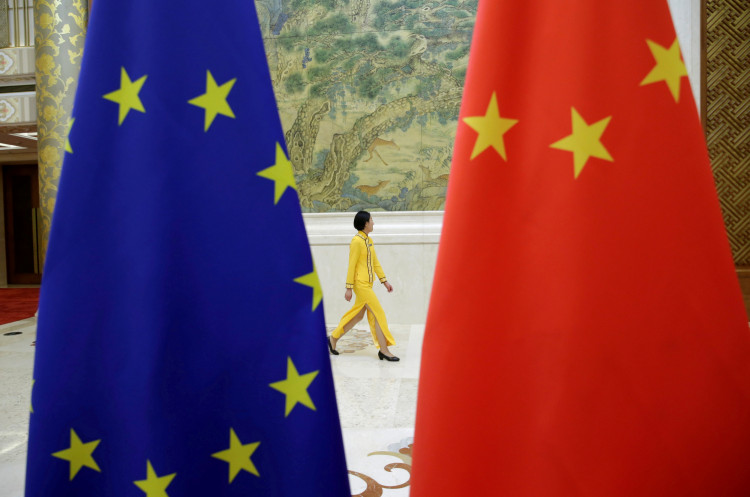The threat presented by dozens of covert Chinese "service stations" is not being adequately addressed by European Union countries, according to a human rights organization that exposed the purported facilities on Thursday (Dec 15).
Chinese authorities have created 102 overseas police stations in 53 countries, including 11 in Italy, according to the Safeguard Defenders, a rights organization with an emphasis on Asia with headquarters in Spain. This is the most of any foreign country.
The non-governmental organization (NGO) reports prompted inquiries from a number of countries, including those Canada, the United States, and the Netherlands. Still, the group claims that the EU as a whole has yet to make a coordinated effort.
"We have seen no indication that there is a will from various EU governments to coordinate (their actions), and as far as we are concerned this is a great pity, a great mistake," Safeguard Defenders' campaign director Laura Harth said.
According to Chinese authorities, the facilities are volunteer-run centers that assist Chinese individuals in renewing their identification credentials and provide other services interrupted by the COVID-19 outbreak.
Harth stated during a news conference in Rome that her organization used open-source data from Chinese media and government sources.
The NGO views the stations as an expansion of Beijing's initiatives to persuade certain Chinese ex-pats to return to China in order to face criminal proceedings. Such activities, according to the report, are unlawful and almost certainly aim at dissidents.
When compared to other nations, who were quicker to shut down the stations, Harth said that Italy and France stood out for having "weaker in their responses, less transparent on what they are doing." Due to a cooperation agreement from 2015 that permitted them to participate in combined patrols with Italian counterparts in cities like Rome, Milan, and Naples, some Chinese police personnel has operated openly in Italy.
Safeguard Defenders claims China has operated "service centers" in Italy since 2016, while interior minister Matteo Piantedosi claimed this Monday that police had only discovered proof of two of them, not 11.
In response to a parliamentary inquiry regarding the NGO claims, Piantedosi stated that the police and intelligence agencies were on high alert and that he was prepared to implement "sanctioning measures" if any criminal behavior was shown to have occurred.
The Belt and Road Initiative, a massive undertaking intended to expand Beijing's trade reach, attracted Italy as the first significant industrialized country to sign on in 2019. Little has so far resulted from the agreement, and Giorgia Meloni, Italy's new prime minister, has adopted a more confrontational stance toward China.





